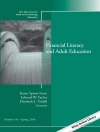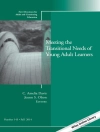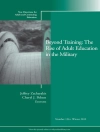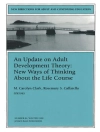This book is a contribution to the sociocultural approaches to Science Technology Engineering and Mathematics (STEM) Education. It offers a new interpreting theoretical framework coming from the Cultural Historical Psychology. The authors highlight some serious elements of the sociocultural context that mediates learning on STEM or with STEM adds. The book brings together the work of researchers interested in developmental psychology and childhood, with a special focus on using Activity theory and Cultural-historical research approach to unite these two opposing approaches to the study of children. The authors reconsider our relationship and experiencing with technology. It moves the attention from the pure instrumental aspect of technology to a deep human and societal approach. Moreover, the book focuses on the issue of teachers’ continuing education in both formal and informal settings is being seen under a sequential system of expansive cycles and the key role of contradictions in transformative educational settings.
Overall, this book encourages the academic society to open dialogue with other societies and enhance interdisciplinary research in times of crisis.قائمة المحتويات
Preface.- Part I: SECTION 1: SECTION 1: A CHAT PERSPECTIVE ON TRANSFORMATIVE ACTIVITY IN SCIENCE EDUCATION: THE ROLE OF TENSIONS AND CONTRADICTIONS.- Chapter 1. A cultural-historical perspective on upper-primary and secondary science education: Implications for research (Seth Chaiklin).- Chapter 2. On the Nature of Science Education Antinomies: Discussion from Cultural-Historical Activity Theory Perspective (André Rodrigues, Juliano Camillo, and Cristiano Mattos).- Chapter 3. Expansive resolution of conflicts of motives by science teachers leading to the development of their praxis in their respective school communities (Sylvie Barma).- Chapter 4. Exemplifying tensions of inter- versus intra-disciplinary learning in context of school makerspaces using lenses of activity theory (Viktor Freiman).- Chapter 5. STEM Education and double stimulation in a regional network (John Cripps Clark).- Part II: INSTRUMENT PRODUCING ACTIVITY AND THE ROLE OF TECHNOCREATIVE ACTIVITIES IN STEM EDUCATION:A CHAT PERSPECTIVE.- Chapter 6. We have problems! Analysis of the attitudes and actions within the collaborative problem solving of the international educational robotics challenge (Margarida Romero and Sylvie Barma).- Chapter 7. Creative Computing: acculturating school children and teachers to teaching and learning with scratch (Tara Ratnam).- Part III: EARLY YEARS SCIENCE EDUCATION FROM A CULTURAL HISTORICAL PERSPECTIVE.- Chapter 8. ‘On the way to Science…’ Development of the Scientific Method in the early years (Eleni Kolokouri and Katerina Plakitsi).- Chapter 9. The mediating role of the educator: Is it always a case of intervention (Glykeria Fragkiadaki and Konstantinos Ravanis).- Chapter 10. Creativity in Early Years Science Education (Maria Topoliati and Katerina Plakitsi).- Part IV: CHAT IN SCIENCE TEACHERS EDUCATION.- Chapter 11. Expanded co-teaching activity in the context of physics teacher education (Glauco S. F. Silva and Cristiano Mattos).- Chapter 12. CHAT in organizing a Teacher Development program about teaching NOS (Anna Koumara).- Chapter 13. Science Education Program “Thunderbolt Hunt”. Practicing Scientific Method in the Archaeological Museum of Ioannina (Christina Kornelaki and Katerina Plakitsi).- Epilogue.
عن المؤلف
Katerina Plakitsi is a full professor of Science Education and member of the Governing Board at the University of Ioannina. She is ISCAR President and co-founder of the ISCAR-STEM section. She is journal editor, principal investigator and director of a master’s program working on Formal and Informal Science/Environmental Education and Cultural Historical Activity Theory for Sustainability.
Sylvie Barma is a full professor of Science Education at Laval University. Her experience as a practitioner and curriculum writer is put to use in her research. She is co-founder of the ISCAR-STEM section. Her research interests are: Expansive learning theory and the Change Laboratory methodology, addressing socio scientific issues in the science class and collaborative problem solving.












